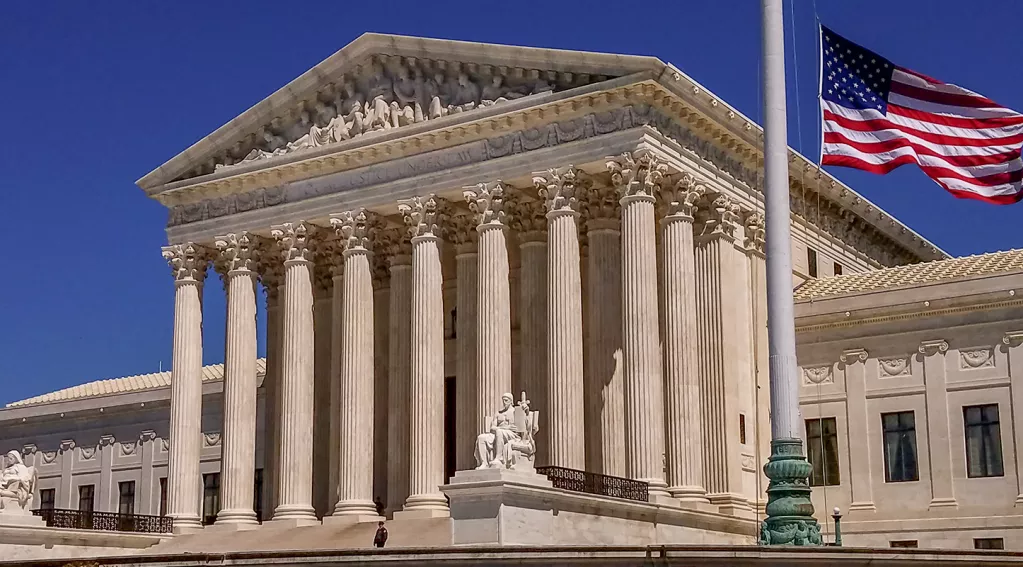What did Judge Ketanji Brown Jackson say about Immigration in her Confirmation Hearing?

FAIR Take | March 2022
Despite being on the forefront of many American’s minds in 2022, immigration was sparingly discussed during Judge Ketanji Brown Jackson’s U.S. Supreme Court confirmation hearing this week. Three immigration-related questions were asked, however, that could shed light on how Judge Jackson would influence immigration policy as a Supreme Court justice.
First, Senators Chuck Grassley (R-IA), Lindsey Graham (R-SC), Marsha Blackburn (R-TN), and John Kennedy (R-LA) each questioned Judge Jackson about her decision in Make the Road New York v. McAleenan (2019). In that case, Judge Jackson issued an injunction to stop the Trump administration from expanding its use of Expedited Removal to the temporal and geographic bounds explicitly permitted by statute. Expedited Removal is a process, created by the Immigration and Nationality Act that allows the Department of Homeland Security (DHS) to more quickly remove recent illegal border crossers and certain criminal aliens from the United States than traditional removal proceedings.
The statute gives DHS the “sole and unreviewable” discretion to make this decision and goes further to add that the Secretary can modify this decision at “any time.” Nevertheless, Judge Jackson reviewed the action and ruled against DHS, holding that DHS likely violated the Administrative Procedures Act (APA) by skipping steps to justify the policy change, and that it failed to properly consider the policy’s impact, including failing to seek public input.
In short, Judge Jackson explained that she believed the statutory language had not exempted DHS from the APA’s procedural requirements, and her decision was an attempt to read the two statutes harmoniously. While Judge Jackson was right to consider Congressional intent and previous D.C. Circuit rulings when interpreting the statute, her expansive reading of the APA in light of the very clear language of the INA suggests a willingness to rule against agencies acting pursuant to explicit statutory authority.
Senator Graham characterized this decision as a blatant act of judicial activism. “This is an example to me, and you may not agree, where the plain language of the statute was completely wiped out by you. You reached a conclusion because you disagree with the Trump administration,” he said. “That to me is exhibit A of activism.”
Judge Jackson’s ruling was ultimately reversed. The Court of Appeals for the District of Columbia Circuit wrote, “There could hardly be a more definitive expression of congressional intent to leave the decision about the scope of expedited removal, within statutory bounds, to the Secretary’s independent judgement.” Judge Jackson’s failure to properly interpret the plain language of the statute is concerning and may foreshadow judicial activism in other areas of immigration policy that lie within the sole discretion of the Executive Branch.
Second, Senator Graham asked Judge Jackson whether noncitizens should be able to vote in the United States. While Judge Jackson said no, she explained that it is currently illegal for noncitizens to vote in the United States.
Generally speaking, she is correct. Noncitizen voting is illegal in most U.S. elections, with some egregious exceptions, but this is not the best answer to this question. And although Judge Jackson resisted answering any policy question throughout her entire hearing, her failure to acknowledge any reason why voting in U.S. elections must exclude noncitizens in order to not undermine foundational concepts of sovereignty suggests that she may support state, local, or federal laws that permit noncitizen voting. When asked about her thoughts on the noncitizen voting that is permitted by the recent New York City ordinance, Judge Jackson claimed to be ignorant of the circumstances and declined to comment on it.
The final immigration-related topic that was raised during the hearing was broached by Senator Alex Padilla (D-CA). Late into Wednesday evening, Senator Padilla asked Judge Jackson whether her decision to use the words “noncitizen” or “undocumented” rather than “alien” or “illegal alien” in her written opinions was deliberate. Judge Jackson briefly responded that she believes clarity and language matter greatly when explaining the law to people, implying that it was indeed a deliberate choice.
Judge Jackson’s refusal to use the term “alien” in the context of interpreting immigration law – a term of longstanding and legally correct usage – is concerning and indicates a willingness to allow politics and political pressure to influence her judgment. “The Court uses the term ‘undocumented non-citizens’ throughout this Memorandum Opinion to refer to persons born abroad — the federal immigration statutes call them ’aliens’ — who are deemed ‘inadmissible‘ under 8 U.S.C. §§ 1182(a)(6)(C) or 1182(a)(7) because they have not received authorization to come into, or remain, in the United States,” Jackson wrote in a footnote.
FAIR believes true political neutrality requires courts to use the language of the statutory law in decisions interpreting that law. The term “undocumented” is a political choice, intended to obscure the distinction between citizens, nationals, legal immigrants and nonimmigrants, and aliens in the United States without legal authorization.
The Senate Judiciary Committee will vote on Judge Jackson’s Supreme Court nomination on Monday, April 4. If nominated, Judge Jackson will fill Justice Stephen Breyer’s seat on the Supreme Court.

